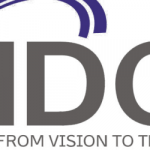Securing the Internet of Things in a Quantum World

(EETimes) In order to support the security of the internet and other cryptographic-based technologies, it is necessary to increase mathematical research to build the cryptography of tomorrow, which is resistant to quantum attacks and will become known as post-quantum or quantum-resistant cryptography.
“Security requirements of IoT devices can be very complex,” said Dr. Thomas Poeppelmann, senior staff engineer, Infineon Technologies. “As a result, security cannot be achieved by a single technology or method. For example, a vendor has to consider aspects like secured software development, protected patch management, supply chain security, protection against physical attacks, trust and identity management, and secured communication.”
“An IoT device has to check that a software update is really from the vendor and that it was not created by an attacker,” said Poeppelmann. “If the cryptographic methods used in an IoT device can be broken by an attacker, this would expose it to a lot of vulnerabilities. With quantum-safe cryptography, we want to provide our customers with cryptographic methods that are even protected against attacks using quantum computers. With our post-quantum technology, we aim to provide security in the long term and against very powerful attackers.”
Large-scale QKD technology has already been tested in several countries to provide secure quantum protection to critical infrastructures. The project Aquorypt will investigate the applicability and practical implementation of quantum-safe cryptographic methods for embedded systems. In the Aquorypt research project, the Technical University of Munich (TUM) will collaborate with researchers and industrial partners to develop new protection measures for the quantum computing era.
Another project, PQC4MED, is focused on embedded systems in medical products.
“Quantum technology such as quantum computers or quantum sensors have different requirements for market adoption,” said Poeppelmann. “For the adoption of quantum computers, we need a computer that is really able to prove a benefit for real-world tasks (e.g., chemical analysis, AI, etc.) over currently used cloud methods. In general, it is important to raise awareness to foster market adoption of quantum-resistant cryptography. The threat is real, but with PQC, we have a migration path available.”



















